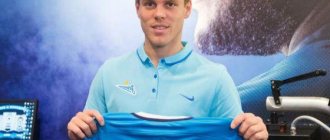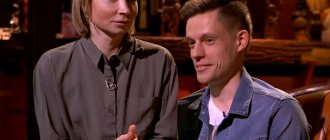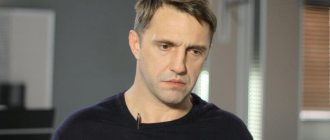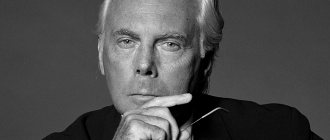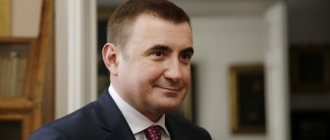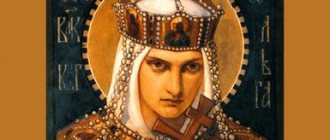Childhood and youth
In the spring of 1956, a boy was born into an ordinary Soviet family in the town of Ivanovo, whom his parents named Vladimir. Growing up, he did not show any outstanding abilities or talents. During his school years, he was reserved and shy, not standing out among other boys. Studying was not easy for the child, as he often did not listen to the teachers, but thought about something of his own. But, having an excellent memory, he could easily tell any school topic, receiving good points for it.
Vladimir Lisin
In 1973, Vladimir was enrolled in the Siberian Metallurgical Institute at the Faculty of Engineering. While receiving an education, the young man understood that his parents needed financial assistance. Therefore, at the age of 19, he already began his career as an electrician at the Kuzbass coal mine. After completing his studies, the young specialist went to work at the Tula Metallurgical Plant as a steelmaker. Showing remarkable hard work, Vladimir began moving up the career ladder. The shop manager appreciated the diligent young man and appointed him as his deputy.
Vladimir Lisin loves cigars
But Lisin decided not to stop there and began scientific research, thanks to which he became a graduate student at the Kharkov Research Institute. Upon completion of graduate school, he was appointed deputy leading engineer at the Karaganda Metallurgical Plant, where he worked for about 4 years. Here he received his first experience in commercial activities, under the auspices of Oleg Soskovets, the director of the plant.
Trans World Group
Initially, the Cherny brothers considered the experienced metallurgist solely as a manager, but over time they admitted him to partnership. In company with David Ruben and Oleg Deripaska, the company Trans World Group, or TWG for short, was founded. Very quickly she took control of all the largest metallurgical plants in Russia. The profitable business did not go unnoticed by Russian criminals. The Cherny brothers actively collaborated with thief in law Yaponchik (Ivankov) and the Izmailovskaya organized crime group.
Otari Kvantrishvili and Boris Yeltsin
Crime actively participated in the process of redistribution of property, so the privatization of the Krasnoyarsk aluminum smelter alone claimed the lives of 10 people who showed excessive interest in the assets. Various groups tried in every possible way to seize attractive assets. The death of Moscow authority Otari Kvantrishvili is from the same series. He seriously decided to engage in trading in non-ferrous metals. Around the same time, the vice-president of the Yugorsky bank, Vadim Yafyasov, the banker Oleg Kantor, and the owner of the American company AIOC, which operated in Russia, Felix Lvov, were killed due to the division of spoils.
At the same time, tolling flourished, obviously not without the approval of the government of the country, where the industry was supervised by former metallurgist Oleg Soskovets. Tolling meant that metallurgical plants received raw materials supplied by customers. Metal was smelted from it and sent to the international market. Domestic metallurgists received only wages for their work, but in the context of the global economic crisis that gripped the country, they were very happy with this too. Vladimir Lisin was among the pioneers of tolling. As soon as Soskovets fell into disgrace in June 1996, tolling immediately came under fierce criticism, and the influence of TWG on the metallurgical industry began to rapidly decrease.
Business
Soskovets created TSK-Steel, a subsidiary of the plant, and appointed his deputy as head of the company. This company had a turnover of 20-25 million dollars. In 1991, Soskovets was appointed to the post of Minister of Metallurgy, and 10 months later he was already a member of the government. Having moved to the capital, Oleg did not abandon his deputy, taking him with him.
Businessman Vladimir Lisin
Here Lisin met Semyon Kislin, the owner of the Trans Commodities company, which supplies raw materials to domestic metallurgical plants. Friendships began between the men, thanks to the fact that the aspiring businessman was able to help Kislin out in a difficult situation for his business. They started a joint business, where Lisin’s connections were widely used. At the same time, Vladimir Sergeevich makes acquaintances with Chernov, Makhmudov and Deripaska, who are not the last people in the metal industry.
A year later, V.S. Lisin joined the board of directors of the aluminum plant in Sayanogorsk and received membership in the Novolipetsk Metallurgical Plant. And in 1993, the entrepreneur was finally accepted as a partner in the Trans World Group, which he had been dreaming about for quite some time. The TWG company was already at the peak of its activity and was turning over billions until 1995, when the management was mowed down by a wave of contract killings.
Chubais and Chernomyrdin also did not favor this company.
Vladimir Lisin and Dmitry Medvedev at NLMK
TWG began to disintegrate in 1996, when the entrepreneurial brothers began dividing up the business, and their patron Soskovets was fired from the government in a huge scandal. But Lisin, foreseeing the sad end of TWG, managed to hedge his bets and bought up part of the shares of NLMK (Lipetsk Plant). Subsequently, having agreed with Potanin, he even seized control of this company, becoming the owner of NLMK. The entrepreneur created the company Worslade Trading offshore, through which he not only sold metal abroad, but was also able to take the remaining 50% of the shares of the Lipetsk plant.
Vladimir Lisin and Vladimir Potanin
In addition to developing financial schemes and earning capital, Vladimir Sergeevich successfully works in the field of science. It boasts many proprietary developments in steel rolling and casting. An incredible mind and popular ingenuity allowed the future oligarch to receive a diploma from RANEPA in 1994, and then followed a couple of years of doctoral studies at MISiS University. His photos adorn many scientific journals and articles.
Businessman Vladimir Lisin
The year 1997 was marked for the entrepreneur by membership in the council of the Magnitogorsk Iron and Steel Works and the presidency of the Russian Metallurgical Management Company. In 1998, having become the head of HLMK, he sold his shares in TWG to Potanin. From this moment on, Lisin begins to actively buy shares of the country's largest metal rolling mills, taking control of controlling stakes. And immediately an active confrontation between two oligarchs begins - Lisin and Potanin. There was everything: civil strife, buying up other people's shares through intermediaries, and a lot of conflicts. But by 2001, they suddenly stopped conflicting and became interested only in their own factories, increasing their reputation and managerial efficiency.
Moscow and Kislin
In 1991, Oleg Soskovets moved to Moscow and headed the Ministry of Metallurgy of the Soviet Union. Vladimir Lisin also changes Karaganda to the capital, subsequently explaining this event as a simple coincidence.
In the 90s, Moscow was flooded with foreigners who saw great prospects for their business here. Former Odessa resident Sam Kislin, who worked as a grocery store manager before emigrating, also came from America to the capital of the Russian Federation. And at the time of his arrival, he already owned a reputable metallurgical company, Trans Commodities, which was engaged in the supply of raw materials.
The paths of Kislin and Lisin crossed. The latter helped the American “resolve” an almost stalemate financial situation, where $30 million was at stake. This is how the collaboration began. The business was based on “tolling” - a mechanism that made it possible to transport raw materials abroad practically without duties. Vladimir Sergeevich worked for “Uncle Sam” at Trans Commodities as a de facto hired employee, and this status did not really suit him.
Large investments of money
Having acquired billions, Lisin continues to increase his turnover and invest in many industries.
- So, in 2004, he acquired the Stoilensky mining and processing plant, thereby providing NLMK with ore for many years to come.
- In the fall of the same year, he bought the Northern Oil and Gas Company, justifying this by the need for a site for investment in the energy sector.
- A year later, NLMK placed some of its own shares on the London stock exchange, receiving $600 million for the transaction. This money was then used to invest in Moscow real estate, in particular, the Moscow City project.
- In 2006, it acquired 2 seaports, thereby opening export channels to Asia, Africa, Europe and America, and reducing port costs.
- In 2012, Vladimir bought shares in the First Freight Company (PGK), which includes railway, shipping and stevedoring services.
- In 2013, Lisin became the owner of Universal Cargo Logistics.
- Purchase of a Business FM radio station.
- Acquisition of a printing house and publication of the newspaper “Gazeta”. Lisin comments on this by saying that he needed a printed publication that did not depend on anyone.
Businessman career
Since 1996, Lisin decides to engage in entrepreneurial activity. Having acquired a certain amount of securities of the Novolipetsk Metallurgical Plant, he establishes an offshore company Worslade Trading, registered in Ireland, and begins to sell metal abroad. After this, the businessman begins to gradually acquire shares of the largest metallurgical plants, taking control of controlling stakes.
In 1997, Vladimir Lisin became a member of the executive body of JSC Magnitogorsk Iron and Steel Works, works as general director and heads the Russian Metallurgical Management Company.
The businessman's wealth is rapidly increasing.
State
Money must constantly work - this is the favorite motto of Lisin, whose fortune by 2008 was more than $20 billion. But then the global crisis intervened, and the oligarch’s assets dropped to $5 billion. But a year later the situation stabilized, and the amount grew to $16 billion. In 2011, Forbes magazine announced a figure of $24 billion, owned by Vladimir Sergeevich.
Vladimir Lisin is one of the ten richest Russians
According to the latest estimates of the American publication Forbes 2016, the head of NLMK ranks 115th in the world and 7th among the richest Russians.
Lisin Vladimir Sergeevich
Biography
Lisin Vladimir Sergeevich was born on May 7, 1956 in Ivanovo.
He graduated from the Siberian Metallurgical Institute in 1979, postgraduate studies at the Ukrainian Research Institute of Metallurgy in 1984, and the Academy of National Economy. Plekhanov in 1994, doctoral studies at MISiS in 1996.
Doctor of Technical Sciences.
In 1979-1985 - steelmaker, operator of a continuous steel stripping plant, shift manager, section manager, deputy shop manager at Tulachermet Production Association.
In 1970-1984 - member of the Komsomol.
Since 1986 - Deputy Chief Engineer, and since 1989 - Deputy General Director of the Karaganda Metallurgical Plant O. Soskovets.
In 1992-1997 - member of the Board of Directors of Sayan Aluminum Plant JSC (SaAZ), was Chairman of the Board of Directors (1992-1993).
Since 1996 - member of the Board of Directors of JSC Novolipetsk Iron and Steel Works (NLMK) - representative of the exclusive trader NLMK, since 1997 - member of the Board of Directors of JSC Magnitogorsk Iron and Steel Works. He is the General Director of Russian Managing Metallurgical Trans-Cis Commodities Ltd, which has conquered the aluminum market.
In December 1997, he announced his intention to create the transnational concern Soyuz Metalresurs (SMR), the main goal of which would be to increase the efficiency and profitability of the metallurgical enterprises integrated into it.
In 2007, through an offshore company, he acquired 14.42% of the shares of Zenit Bank.
On October 6, 2011, he was elected head of the board of directors of JSC United Shipbuilding Corporation.
October 28, 2011 — Lisin’s structure, Independent Transport Company LLC, acquired at an auction 75 percent minus two shares of Freight First Company OJSC for 125.5 billion rubles. (about 4 billion dollars). During the auction, only one step was made for 125 million rubles. Thus, Lisin, as the largest rolling stock operator in the Russian Federation, began to control a quarter of the rail freight market.
Since 2001 - vice-president, since June 2002 - president of the Shooting Union of Russia (SSR), vice-president of the National Sporting Federation. In 2001, Lisin fulfilled the standard for candidate master of sports in compact sporting (skeet shooting). In April 2001, he was elected president of the Lipetsk Metallurg sports club.
In 2005, he was registered as a candidate for the post of president of the Russian Olympic Committee (ROC), but then withdrew his candidacy.
With a personal fortune of $24 billion, in 2011 he took 1st place in the list of the 200 richest businessmen in Russia (according to Forbes magazine).
Vice-President of the International Union of Metallurgists. Trustee of the Makarievsky Fund, established by the Russian Orthodox Church.
Titles and awards
1990 - Doctor of Technical Sciences (MISiS). 2005 - Doctor of Economics (Academy of Management). Professor of the Department of Market Problems and Economic Mechanism of the Academy of National Economy under the Government of the Russian Federation, author of 16 monographs and more than 150 scientific publications. Laureate of the USSR Council of Ministers Prize in the field of science and technology in 1990. Honorary metallurgist of the Russian Federation. Knight of the Order of Honor, President of the Russian Shooting Union. Master of Sport. Honorary citizen of Lipetsk (2009).
Married, together with his wife Lyudmila he has three sons (Vyacheslav, Dmitry, Alexander). He collects Kasli iron castings and is considered the owner of one of the most complete private collections of pre-revolutionary Kasli castings (it has more than 200 exhibits, and the entire pre-revolutionary assortment of the plant was a little over 300 types of different products). These are small sculptures, household items, interior furniture - in total more than 200 cataloged exhibits.
Fluent in English. He is passionate about shooting sports (the businessman owns the Fox Hole shooting complex near Moscow). He financed the publication of the printed newspaper “Gazeta”, which was published from 2001 to 2010. Loves cigars.
Personal life
Vladimir Sergeevich does not like to advertise his personal life and carefully hides it from the press. But it is known that he is happily married, having married his classmate Lyudmila. The couple raised three sons, who also prefer not to put their lives on display. None of the businessman’s family is on social networks.
Vladimir Lisin's wife
The oligarch's wife loves paintings by Russian artists and organizes their works in chronological order. She also heads the Seasons painting gallery, which periodically hosts private exhibitions of paintings by private collectors. Lyudmila also became interested in collecting, but this happened at the suggestion of her husband, who gave her a painting by Petrov-Vodkin.
Vladimir Lisin with children
Vladimir Sergeevich loves to read, smoke fine cigars, and relax in his mansion in Scotland. He is also interested in shooting and collecting samples of Kasli casting. According to the tycoon, he owes all his achievements to his children. He says that it was only for their sake that he sought to rise to his feet and make a fortune.
Capitalist now
At the moment, the oligarch is a member of the Bureau Committee of the Board of the Russian Union of Industrialists and Entrepreneurs, chairman of tax policy, and also the head of the board of trustees of the Russian Olympians Support Fund.
Vladimir Lisin now
Vladimir Sergeevich Lisin is a man who, from the position of an ordinary steelworker, rose to the head of one of the largest companies in the metallurgical industry.
He is purposeful and dedicated to his work. In 1978 he graduated from the Siberian Metallurgical Institute. In 1990 he graduated from the Higher Commercial School at the Academy of Foreign Trade. In 1992 he graduated from the Academy of National Economy.
Vladimir Lisin now
Now that Vladimir is at the peak of his prosperity, he can easily afford to do what interests him. He recently built a shooting complex for athletes. This club is located in the Moscow region and is called “Fox Hole”. Since the tycoon heads the Russian Shooting Union, he constantly pours his own funds into it. Asserting at the same time that this does not bother him at all. They say that in his youth he himself adored shooting sports.
Vladimir Lisin loves shooting sports
Vladimir Lisin is actively involved in charity work. He donates a lot of money to the charity foundation “Mercy”, gives gifts to orphanages and the department. Lisin is the only philanthropist who began paying Makariev Prizes at the request of the Metropolitan of Voronezh. With the active support of NLMK, about 40 churches were restored in the region, and the head of the plant was awarded the Order of Sergius of Radonezh by the patriarch himself. You can ask for help and write an open letter to a businessman through his official website. This option is available to every citizen of the Russian Federation.
Vladimir Lisin now
Now Vladimir Sergeevich is a member of the Bureau Committee of the Board of the Russian Union of Industrialists and Entrepreneurs, where he holds the position of Chairman for Tax Policy, and is also a member of the Board of Trustees of the Russian Olympians Support Fund.
In 2020, several sources reported that the outstanding entrepreneur had cancer. This information has not been confirmed by anything.
Lisin's statements
- “I definitely understand that I was right not to go down this path of taking, taking, taking.”
- “I’m constantly surprised when a person who came out of nowhere starts talking about professional problems.”
- “Only professionals should work in the main positions, not people who know a little about everything. It is important to have experience and education, as well as take continuing education courses.”
- “Strategy is not a list of rules. It all depends on the specific situation.”
- “We watch our own words. Companies have a principle: it’s better not to talk, but if they say it, then they need to do it. Many colleagues make a noise here, make a noise here, and then nothing.”
- “For example, I will decide to reduce my staff and increase the salaries of my remaining employees. Where will the rest go? I think they will wait behind the fence in order to rob the more fortunate employees of what they have earned.”
- “The economic power of a firm depends not only on its size.”
- “The purchase must pursue a specific, pragmatic goal. Either it will be pumping up assets, therefore a speculative factor, or it will be market development. The choice is not always easy.”
- “I think super monsters are harmful.”
- “One of my business partners joked: “You will polish your own assets forever.” He said this with irony, of course, but, as it turned out, it was precisely the polishing of assets that had a positive effect.”
- “The depth of optimizations is endless. Market development never stops. If you stop pedaling, your path slides into a losing zone.”
- “You need to understand that the world has changed, information cannot be hidden, it cannot be hidden. However, I am not a guru for predicting what will happen next.”
- “Many mistakes in business arise from an unwillingness to give up one’s ambitions. Regardless of the situation, it is difficult to change your mind. But for every leader, one’s own ambitions should not overshadow the final goal of the business.”
- “Economic laws do not change; any manager should know them.”
- “My work is aimed at improving the company’s performance.”
Successful investments by Lisin
When the metallurgist’s fortune began to amount to billions of dollars, Lisin became interested in other projects:
- 2004 - acquisition of Stoilensky Mining and Processing Plant (as a source of raw material for NLMK) and OJSC Severneftegaz;
- 2005 - sale of a small number of shares of the metallurgical plant and investment of the profits ($600 million) in Moscow real estate;
- 2006 - purchase of 2 seaports in order to reduce transport costs and open new channels for the export of products;
- 2012 - purchase of assets of the First Freight Company;
- 2013 - UCL Holding came into possession of Lisin;
- 2014 - acquisition of the Business FM radio station;
- 2015 - financial contribution to an independent print publication.

